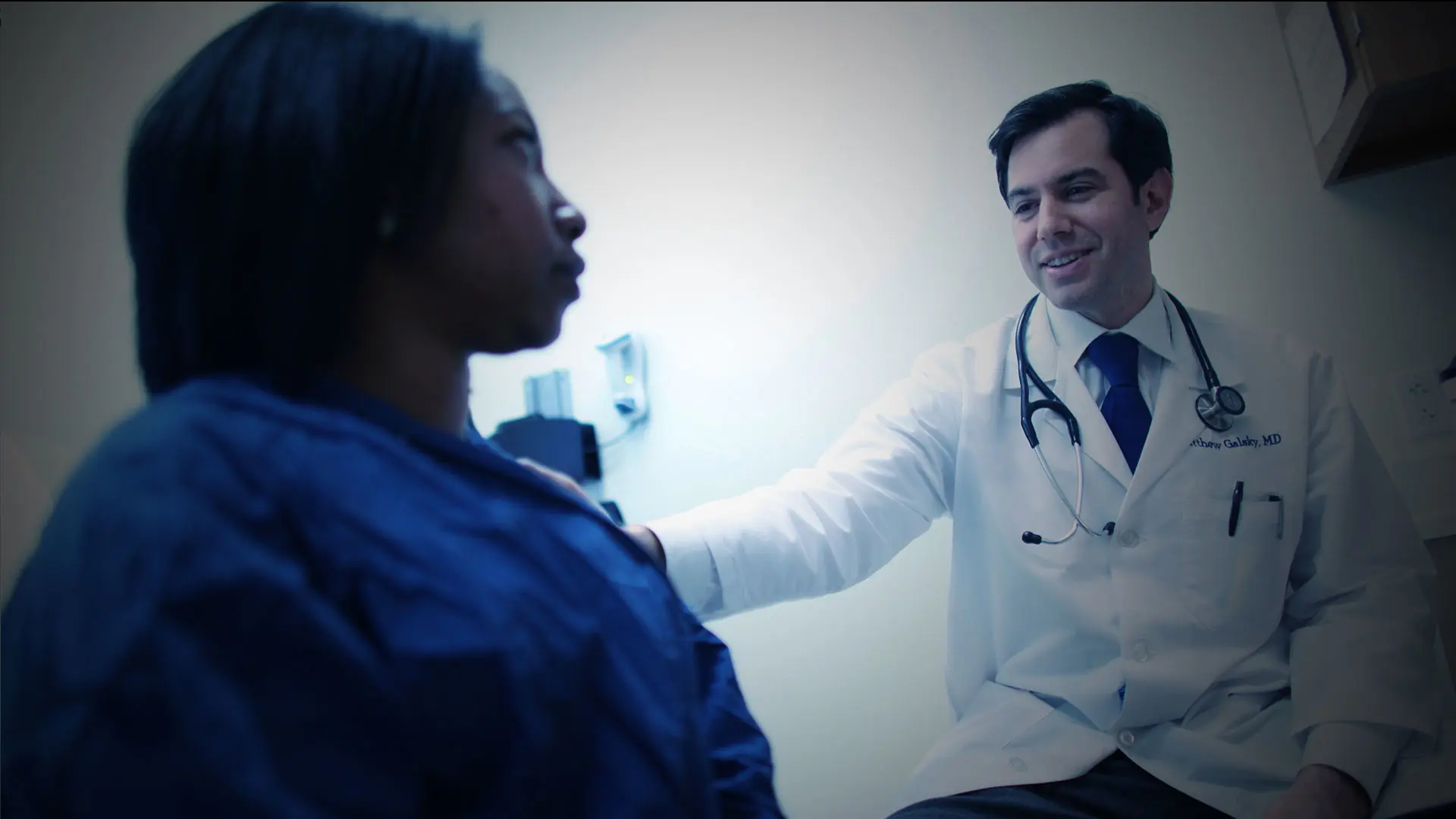Related Article
Few research centers have done more over the past decade to dissect the biology and mechanisms of bladder cancer, along with their response and resistance to modern-day therapies, than the Icahn School of Medicine at Mount Sinai. Through a multitude of first-ever clinical trials, scientists are deploying cutting-edge immunotherapeutic approaches to not just improve the length and quality of life for patients but potentially cure a disease that accounts for more than 70,000 new cases and approximately 15,000 deaths each year in the United States.
Here are three major areas of investigation that encapsulate that targeted effort:
Combination Therapy to Prevent Bladder Removal
Standard treatment for muscle-invasive bladder cancer involves surgical removal of the bladder, a life-changing operation. At the same time, when chemotherapy is given to these patients prior to bladder removal, about 30 percent show no residual traces of the tumor. This has created a dilemma for doctors since there is no way of knowing which patients have achieved a complete pathological response until after the bladder has been removed and analyzed under the microscope.
“We realized what a game changer it could be if we were able to combine immunotherapy with chemotherapy and identify through a battery of tests if a complete response had occurred without removal of the bladder,” says Matthew Galsky, MD, Professor of Medicine (Hematology and Medical Oncology), and Urology, at Icahn Mount Sinai, and Co-Director of the Center of Excellence for Bladder Cancer at The Tisch Cancer Institute. “We could potentially treat patients curatively with chemotherapy plus immunotherapy and prevent them from losing their bladders.”
From that manifest need emerged the country’s first clinical trial, led by Dr. Galsky, to integrate chemotherapy and immunotherapy to advance a bold new personalized medicine approach to bladder-sparing. After four cycles of chemotherapy, participants underwent a thorough assessment, and if their biopsy showed the cancer had been eradicated, they were offered immunotherapy alone—and spared bladder removal.
“The results were very encouraging for patients,” Dr. Galsky reports, noting that they showed a complete clinical response in 43 percent of patients, and that among patients who did not have surgery to remove their bladders, approximately two-thirds showed no signs of recurrence two or more years later. “We’re now analyzing blood and tumor samples to develop biomarkers that could be used to identify patients who could benefit most from this bladder-sparing approach, and have hopes it could eventually become part of our standard treatment.”
“We could potentially treat patients curatively with chemotherapy plus immunotherapy and prevent them from losing their bladders.”
- Matthew Galsky, MD
Overcoming Treatment Resistance
While immune checkpoint inhibitors have transformed the treatment landscape for bladder cancer, only a subset of patients respond well to this approach. Earlier research by Dr. Galsky and Nina Bhardwaj, MD, PhD, Ward-Coleman Chair in Cancer Research at Icahn Mount Sinai and a renowned immunology expert, revealed that macrophages play a pivotal role in the resistance of bladder cancer patients to immunotherapy, suppressing the body’s natural defenses. Moreover, they believed that a specific protein was the source of the problem and that blocking it with an existing immunotherapeutic agent could potentially overcome resistance.
The two scientists are now testing that hypothesis through a unique clinical trial combining drugs to target these macrophages in combination with immunotherapy. “This project will reveal important information about how immunotherapy interfaces with bladder cancer, and why the disease in certain patients might resist treatment,” says Dr. Galsky. “This knowledge could then inform new treatment combinations that could render immune checkpoint inhibitors effective for greater numbers of patients.”
A New Biomarker for Personalized Cancer Treatment
Having already established through groundbreaking research the benefits of immunotherapy after bladder cancer surgery, Dr. Galsky is now investigating the use of a biomarker known as circulating tumor DNA (ctDNA) to determine which patients are likely to realize the greatest gains. ctDNA refers to small fragments of DNA that cancer cells release into the bloodstream, and can be detected through blood tests that are useful for diagnosis, monitoring, and treatment.
Dr. Galsky and his team are launching a phase 3 clinical trial, supported by the National Cancer Institute, that will enroll 1,200 patients nationally to undergo ctDNA testing after cystectomy. Those with detectable ctDNA will be randomized to receive a single immunotherapeutic drug or a combination of drugs.
“In the absence of any tests to detect micrometastatic cancer, we’ve treated all patients after surgery with systemic (also known as adjuvant) therapy despite the fact that only a subset harbor the disease,” Dr. Galsky explains. “Findings from our study have the potential to establish a ctDNA-based approach that could remove the guesswork from that process. And that would be a major step forward for patients with muscle-invasive bladder cancer.”
Featured Faculty and Division Leadership

Matthew Galsky, MD
Professor of Medicine (Hematology and Medical Oncology), and Urology

Nina Bhardwaj, MD, PhD
Ward Coleman Chair in Cancer Research

Joseph A. Sparano, MD
Ezra M. Greenspan, M.D. Professor in Clinical Cancer Therapeutics; Chief, Division of Hematology and Medical Oncology
